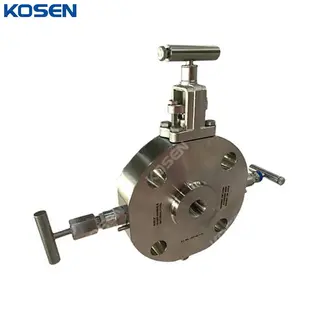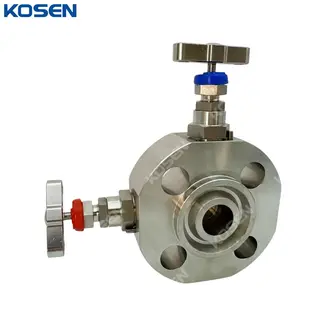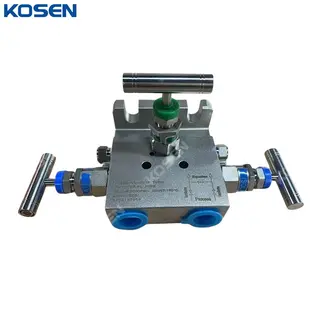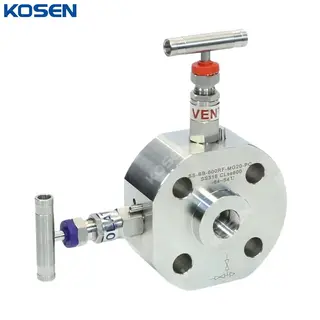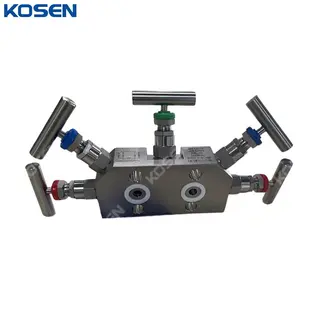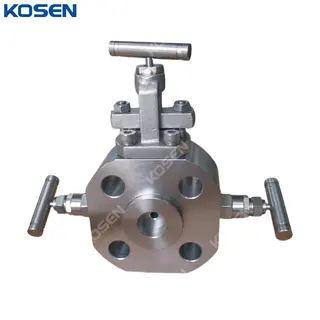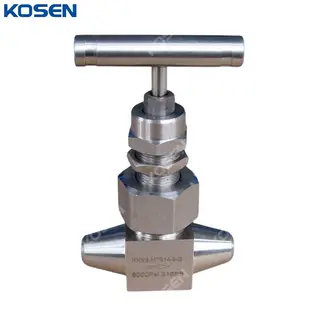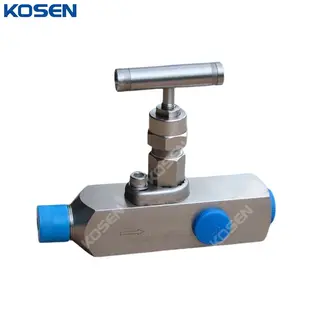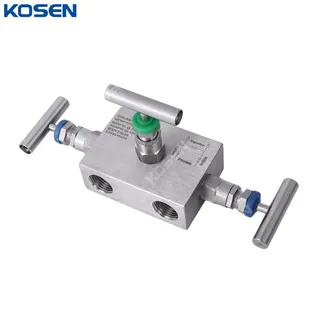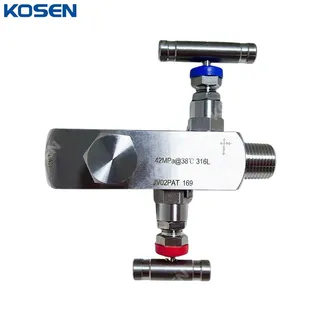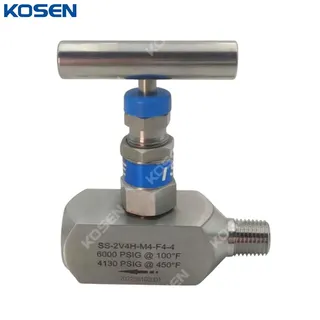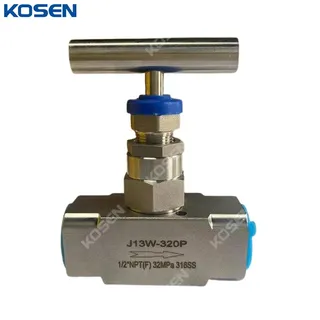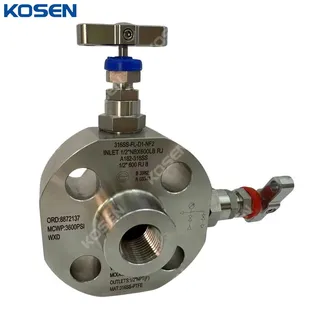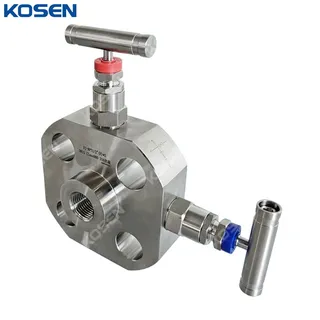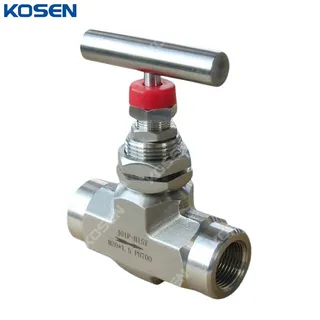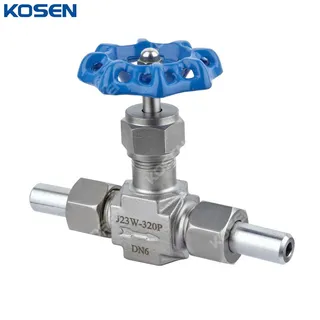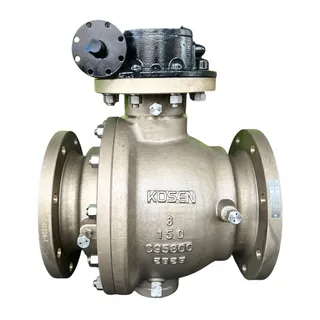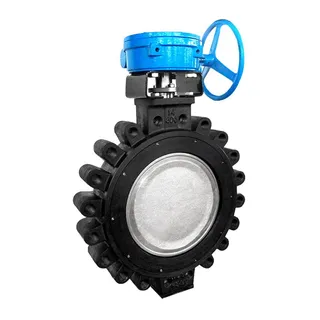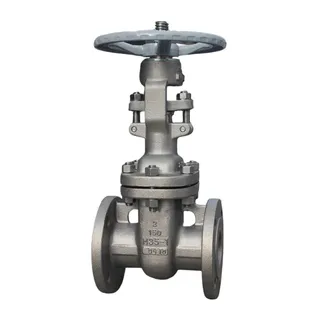Needle valves control the fluid flow by adjusting the opening of the flow passage through a precise needle-shaped piston. The needle-shaped structure of the valve core allows for a variable flow passage size when operating. When the needle piston is near the valve seat, the fluid passage narrows, reducing the flow rate. Conversely, when the piston moves away from the valve seat, the passage widens, resulting in an increase in flow. This mechanism allows for extremely fine flow control, making it suitable for applications requiring precise flow regulation. Needle valves are widely used in applications where precise control is necessary, such as in flame cutting, where the needle valve adjusts the cutting distance by controlling the flame's temperature and shape. Additionally, needle valves are an integral part of instrument measurement systems, often used alongside shutoff and ball valves to control or isolate pipeline flow. The needle valve's core is shaped like a needle and fits into the valve seat, which is how it gets its name.
Needle valves are known for their precise control and excellent sealing performance, making them widely used across various industrial sectors. The core design involves a long needle valve stem and a precisely matched valve seat.
The small diameter of the flow hole allows fine adjustments in flow rate through minimal movement of the valve stem. By rotating the handwheel or knob, the valve stem's upward or downward movement can be adjusted precisely to control the flow. This makes them ideal for applications requiring precise addition of small amounts of fluid or strict pressure control, such as laboratory research, precision processes, and gas-liquid control.
Despite their small flow area, needle valves are designed to withstand high pressures while maintaining excellent sealing performance. The precision grinding of the valve stem and seat, combined with high-quality sealing materials, ensures the valve delivers superior sealing even under high-pressure conditions, preventing leaks.
Many needle valves feature a bidirectional sealing design, allowing them to maintain stable sealing performance even when the direction of the fluid flow changes. This feature makes needle valves suitable for use in more complex piping systems, especially where the flow direction is not fixed.
Needle valves are available in a wide range of materials, including stainless steel, brass, and carbon steel. These materials offer excellent corrosion resistance and mechanical strength, making them suitable for various working environments. For example, stainless steel needle valves are commonly used in chemical and seawater applications, while brass needle valves are widely used in gas and liquid control in general industrial environments.
5. Ease of Maintenance and Cleaning
The relatively simple structure of needle valves makes disassembly and maintenance easy. This is especially important in industries such as pharmaceuticals, food processing, and precision instruments, where regular inspections and cleaning are critical.
Due to their precise flow control and superior sealing performance, needle valves are used across multiple industries to control the flow of gases, liquids, and other media. Their unique structural design provides high sealing integrity and prevents leakage, ensuring system stability. Key applications of needle valves are as follows.
Needle valves are used in the chemical industry to control the flow of various corrosive liquids and gases. Their ability to provide precise flow control makes them crucial in chemical reactions and production processes that require accurate medium flow control. Additionally, their excellent corrosion resistance ensures the safe operation of systems in harsh chemical environments.
In the oil and gas sector, needle valves are used for fluid control in high-pressure pipelines during production and transportation. Needle valves can withstand high pressures while offering stable sealing, ensuring the reliability and safety of oil and gas pipeline systems and preventing potential leaks or flow control issues.
Needle valves are widely used in laboratory and medical equipment due to their ability to precisely regulate fluid flow. They are essential components in laboratory piping and instrumentation, ensuring the accuracy of experimental data and the reliability of equipment. For example, in gas chromatography systems, needle valves are used to adjust the gas flow to achieve precise sample analysis.
One of the major advantages of needle valves is their ability to operate in extreme temperature environments. Some specially designed needle valves can function in both high and low-temperature conditions. For example, certain needle valve models can withstand temperatures up to 400°C, making them suitable for high-temperature reactors, heat treatment equipment, and other applications. Additionally, some needle valves can operate stably in low-temperature environments, making them suitable for refrigeration or low-temperature reaction processes.
